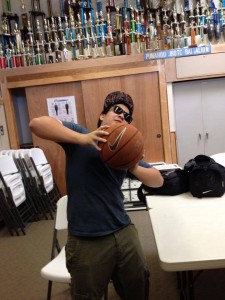Archives
now browsing by author
Languages on Languages(Blog 4)
Language Tree:
http://40.media.tumblr.com/0b7fc2e4a1cf6f5cd29353c706385316/tumblr_ndyeaiWf2E1qf3997o1_1280.jpg
Cognates:
http://www.friesian.com/cognates.htm
Spanish in Tagalog:
http://www.tagalogsayings.com/learn-tagalog/lessons/similarities-between-spanish-tagalog.html
PDF on loanwords:
http://elizabethclaire.com/store/media/general/free-download/Words-that-English-Has-Borrowed-from-Other-Languages.pdf
English in other languages:
http://theweek.com/article/index/242413/how-foreign-languages-mutate-english-words
Romance languages side by side:
http://ielanguages.com/romlang.html
Romantic and Germanic:
http://linguaphilioist.tumblr.com/image/97297548285
Chinese Influence on surrounding countries:
http://www.interestingchinese.com/language-exchange-china-japan.html
English- Japanese False Cognates:
http://kairosity.tumblr.com/post/67030637178/english-japanese-false-cognates
Aphasia and Bilingualism:
http://neurosciencestuff.tumblr.com/post/62625689063/aphasia-and-bilingualism-using-one-language-to
English- Spanish False Cognates:
http://spanishcognates.org/blog/top-20-false-cognates-esl-students
Faux Amis:
http://www.oxfordlanguagedictionaries.com/Public/PublicResources.html?direction=b-fr-en&sp=S/oldo/resources/fr/Difficulties-in-French-fr.html
HW4
Language Variation
Pg. 444
Johnathan/ Bryant/ Miki/ Brian
14)
S/Ph/Ph/ Ph
Sm/ S / S/ S
Ph
Sm
P/ M/ /
P
Pg 445
16)
a.) Some/ some/ non-native/non-native
b.) Natural/ natural/ natural/natural
c.) Some/ some/ some/ some
d.) Some/ some/ natural/ some
e.) Natural/ some/ some/ some
f.) Non-native/ some/ some /some
g.) Natural/ some/ natural/ natural
h.) Some/ some/ some/ some
i.) Natural/ natural/ some/ some
j.) Natural/ natural/ natural/ natural
k.) Non-native/ non-native/ non-native/ some
l.) Some/ some/ non-native/ some
m.) Natural/ some / non-native/ natural
n.) Some/ natural/ some/ some
o.) Non-native/ non-native/ non-native/ none-native
Pg 446
17)
a.) a large open metal container for water is (a) bucket (b)pail (a) (a)
b.) To carry groceries, you put them in a paper (a) bag (a) (a) (a)
c.) Window coverings on rollers are (a) blinds (b)shades (a) (a,b,e) (curtains)
d.) Pepsi-Cola, Coca-Cola, and Seven Up are all kinds of (a) sodas. (d)soft drinks (a) (a)
e.) On summer nights when we were kids, we used to try to catch (a) fireflies (a) (a) (a)
f.) If you go to a popular film, you may have to stand (b) in line. (b) (b) (b)
g.) If your living room is messy, before company comes you (d) clean it up. (a)straighten it up (d) (a,b) (red it up)
h.) if you’re talking to a group of friends, you call them (a) you guys (a) (a) (a)
i.) It’s now a quarter (c)til 5. (b)to 5 (b) (b)
Language & Culture
Pg 479
1) The same language (both people can understand each other), the person is in range (distance), changing of expression depending on the degree of respect , being silent during a conversation in order to “read the atmosphere”(Japanese) Knowing when a greeting is rhetorical or an actual question can be difficult in unfamiliar settings.
2) Cultural competence is linked to various cultures that one can go through life as opposed to what we are hardwired to learn Cultural competence is the proficiency with which one speaks, as viewed through both the language and the current cultural norms. Linguistic competence is the proficiency with which one speaks as viewed through the language itself, without the cultural baggage which may otherwise change the use of the language in isolation. And Linguistic performance is simply the actualization of one’s Linguistic Competence, as actually performed rather than theorized.
3) Adjacency pairs are pairs of adjacent utterances produced by two speakers in which the first utterance provokes the hearer to respond with the second utterance.
Part 1 of Adjacency Pair Part 2 of Adjacency Pair
What’s your name? John Connor.
Where’s the bathroom? Down the hall first door on your left.
I’m hungry. Got any food? Umm lemme check
Are we there yet? Hey that’s not funny.
Did you hear that? Hear what?
Howzit?! Eh, howzit?!
Pg 480
15) Perhaps the most evident establishment of speaker dominance/ hierarchy that I know of is in Japanese. The use of honorifics is a clear cut example of what the relationship between the two speakers is. For example, if someone were to use the honorific “sama” earnestly when speaking to or of another person, it is clear that they place the aforementioned person at a very high rank. Conversely, if one were to refer to another as “kun”, “chan”, or “bou” it is quite clear that that person is placed lower on their scale. There are even more concrete examples with “senpai” and “kouhai” which essentially mean “senior” and “junior”. These are the most obvious indicators of a conversational hierarchy that I am aware of.
Pg 482
28)
a) Etic: A relatively short Asian male of about 18-20 years of age gathered the attention of another asian male of approximately the same height and age. Next, he made a sign with his right hand by extending only his pinkie and thumb, and briefly shaking at about chest height at the other person’s direction (palm outwards). Simultaneously, he said “Howzit brah”. The other person responded by reciprocating the same physical actually, and responded verbally with “Ho, howzit”.
Emic: I saw my friend Jake so I threw a shaka and him and said “Howzit brah”. He shaka’d back and responded with “Ho, howzit”
b) Etic: There I sat, with fried chicken covered in an orange sauce with some spice to it, with fried pieces of potatoes. I stabbed the chicken with a plastic three pronged eating utensil and lifted the utensil and used it to dip the fried chicken covered in the sauce into this white substance with tiny black spots labeled “buttermilk ranch” and proceeded to bring the fried chicken covered in buttermilk ranch into my mouth. I closed my lips and pulled the utensil out and chewed. Then I proclaimed how good the chicken was.
Emic: I sat with my SoCal Chicken and dipped it into the ranch with my fork and ate it. Then I said “Damn this is good chicken.
c) Etic: The stylish Linguistics Professor with glasses and facial hair walked in and greeted his class a good morning, he then got out markers and began writing on the board and soon gave announcements.
Emic: Professor Bigham walked in and said his routinely “good morning” he began writing announcements on the board and soon read them aloud..
29) Passive participation is when the researches merely observe how the natives of the area they are studying interact with each other in order to learn how they communicate. Participant observation is when they “go native” and become a part of the community in order to gather more accurate information.
Language Change
Pg 557
10) Because we can trace back languages that exist today to proto-Germanic the same way we trace back Romantic languages to Latin, as evidenced by a number of certain words that are similar, cognates, among the different, current languages under the Germanic tree branch.
14) The words knife and knight are spelled as such because both initial consonants used to be pronounced, with the actual onset of the word being a /k/, but due to language change and outside influence, the pronunciation of the word changed, however the spelling did not.
Pg 561
22)
hear and heard
wore and wear
hi and high (both slang terms)
spelled vs spelt
data/datum vs data
media/medium vs media + medium
The fluctuations occur due to the way the masses use the words.
Pg 562
29)
i) Many words that we use when dealing with computers or technology are simply terms that have been repurposed from more general uses. Browse, Surf, Web, Search, Page, etc. These are words that had been used in the past, and may still be in use, but are, more often than not, primarily used for their technological purpose. On the other hand, there are new words that were just created. Google, Wi-Fi, Motherboard, Pixel, Bit/Byte, etc. More words tend to be repurposed words than new words. I think this is because it is hard to just create new terms and have them last. Notice how only the really wide-spread / popular terms survive. No one ever “yahoos” something.
ii) Extension has occurred for all of the old words. One reason, as Brian mentioned above, is that because it is harder to produce a new term. Another reason is that the internet was primarily for the storing and accessing of information. Back in “ye olden days” one would browse the shelves for a book to access information, then one would browse the Web which was basically the same thing as browsing for a book but way more convenient, now we just ask Siri.
Pg 563
33)
a. cynic origin: cynicus (the name of a gymnasium where Antisthenes taught) degradation
b. hacker origin: haccian ‘cut in pieces’ Gmc origin degradation
c. anecdote origin: anekdota (things unpublished) reduction
d. grotesque origin: crotesque (work or painting resembling that found in a grotto) degradation
e. parakeet origin: paroquet( little wig) extension
f. leer origin: leer( cheek) extension
g. captivated origin: captivat (take captive) elevation
h. paisley origin: named after the town of Paisley in Scotland extension
Language Contact
Pg 513
12) Japanese has a lot of words borrowed from English and the amount of those has been increasing these days. This actually makes it easier for us to learn English sometimes. However, I do think this trend can be a threat to Japanese language itself because people are more likely to use English-Japanese words instead of using original Japanese expression. This could lead us to forget the original form of language, but language is something that cannot help but changing as time goes by, so I cannot say for sure that it totally has negative effects on a language.
Pg 516
22) The text is somewhat comprehensible. It seems to have the same sentences structure as English. “Wans apan a time dier waz” is a very familiar phrase that many children’s books start with. A good amount of the words are English words but just spelled differently, perhaps it is spelled to the way the speakers of this pidgin pronounce the language. Some words that are troublesome are “kriol” and “triki”
23) Most of the vocabulary is very English, or at the very least derived from English; the spelling used to indicate the pronunciation makes it much harder to make the connection, but most of the these words are comprehensible to an English speaker (excluding the Hawaiian words of course). As for the structure, the grammar is quite different, however it is still logical in its flow and could its meaning could still be understand by most non-speakers. I can understand 100% of this text, however, it does sound quite archaic and most Pidgin speakers would consider this to be very dated.
Pg 517
29) Trying to prevent endangered languages from dying is a worthwhile effort. Daryl Baldwin believes that the language reflects the traditional beliefs and values and according to Rosa Beck, their language was taken from them. So for a language to be taken away it is like their traditions have been removed from the society as well as the history with it.
Retaking the Tower of Babel
The world is becoming smaller and more globalized, realizing this, we have set out to retake the Tower of Babel.
One of our peers, Meg Collier, studied abroad and was put in an environment where her native language wasn’t spoken.
Over the course of her time there, she learned to pick up and understand the things people were saying to her even if she couldn’t respond in that language. She ended up learning a lot more in a shorter amount of time by being immersed in the place where that language was spoken.
Growing up in a myriad of environments has resulted in me, Brian Lab, having a very dynamic view of the world, specifically its languages and cultures. My mother is Thai/Chinese, and my father is American. Originally I lived in Maryland, then moved to Taiwan, with several trips to Thailand in between, before finally settling down in Hawaii. My first language was Thai, but unfortunately I have forgotten nearly all of it, and am left with only the ability to understand some conversation. My perspective on English is pretty varied as well, as I both have the Continental “Proper” English Dialect and the Hawaiian Pidgin English Dialect. As for foreign languages, I learned a small amount of Mandarin while I was in Taiwan, and am currently taking Chinese courses here in college. My strongest foreign language, however, has to be Japanese. I took Japanese for 3 consecutive years in Hawaii (5 years total) and did a homestay/exchange trip in Japan. In addition to these, I plan to learn Cantonese, Chaozhou, and Korean in the future, along with improving the other languages that I’ve learned. So, as you might have guessed, I enjoy learning languages.
Foreign languages are a relatively new interest for me, Jonathan Moore. I originally wanted to learn Japanese because of anime (animated cartoons) and manga (Japanese comics) which I still have an interest in but I set my eyes on a quest for knowledge. What better language to access knowledge than learning Chinese? I knew that modern Chinese wouldn’t lead me to the original sources of documents like the Dao De Jing but it was necessary to get there. So I took Chinese 101 twice at a local community college and ended up with an A the second time I took it. I then followed it up with Chinese 102 which I also got an A in. So I figured I had a knack for languages at least with some assistance from a tutor. I got sort of shafted because I had used the language classes to boost my GPA but Palomar (the community college I went to) stopped their Chinese program so I completely forgot everything except how to say my name. Learning languages has always been hard but through perseverance I believe I can overcome any hurdle including age.
I, Miki Watanabe, started to study English when I started middle school. I joined the ESS(English Speaking Society) club for six years in both middle school and high school, and that is where I found my interests in learning foreign languages. When I was 16, I experienced my first study abroad in the U.S. I went to a private high school in Austin, Texas for a year as an exchange student and throughout the year, had a lot of opportunities to speak and listen to English, in class and even on weekends with my host family. Although it has been several years since I started to learn English, it is still hard for me to handle. Studying a second language is fun, but it takes time and it can be really hard at the same time. Since this is my second time to study abroad, I hope that by the end of the year, I can see some improvement in my English.
As a second generation American, there is the common expectation of to retaining the language and heritage of the country your parents came from. For me, Bryant Bernardo, it was retaining Tagalog and the Filipino traditions. Growing up in Paradise Valley for the first five years of my life, learning and retaining Tagalog was not much of a problem. However, upon moving to Chula Vista and starting kindergarten, the amount of Tagalog I knew diminished due to me being more exposed to English. Upon entering middle school, I soon began to hear more Spanish being spoken among my peers, eventually I was able to pick up some of the Spanish used here such as “no mames guey” or “simon guey” as well as picking up the profanity, but that’s a given for any language. In my sophomore year of high school I was able to travel to Spain, where I was exposed to a different Spanish. It was a fun experience but trying to communicate was terrible, however, this bump in the road served as a catalyst for me to learn Español. At the level I am now, I can survive in TJ. In my senior year, I traveled to China, and there I made friends whom I still keep in contact with; they constantly expose me to Chinese so I decided to take Chinese here at State. This knack for wanting to know what others are saying is probably what drove me to learn Spanish and Chinese, start speaking Tagalog again, major in linguistics and become a polyglot… and eventually retake the Tower of Babel.












 D5 Creation
D5 Creation